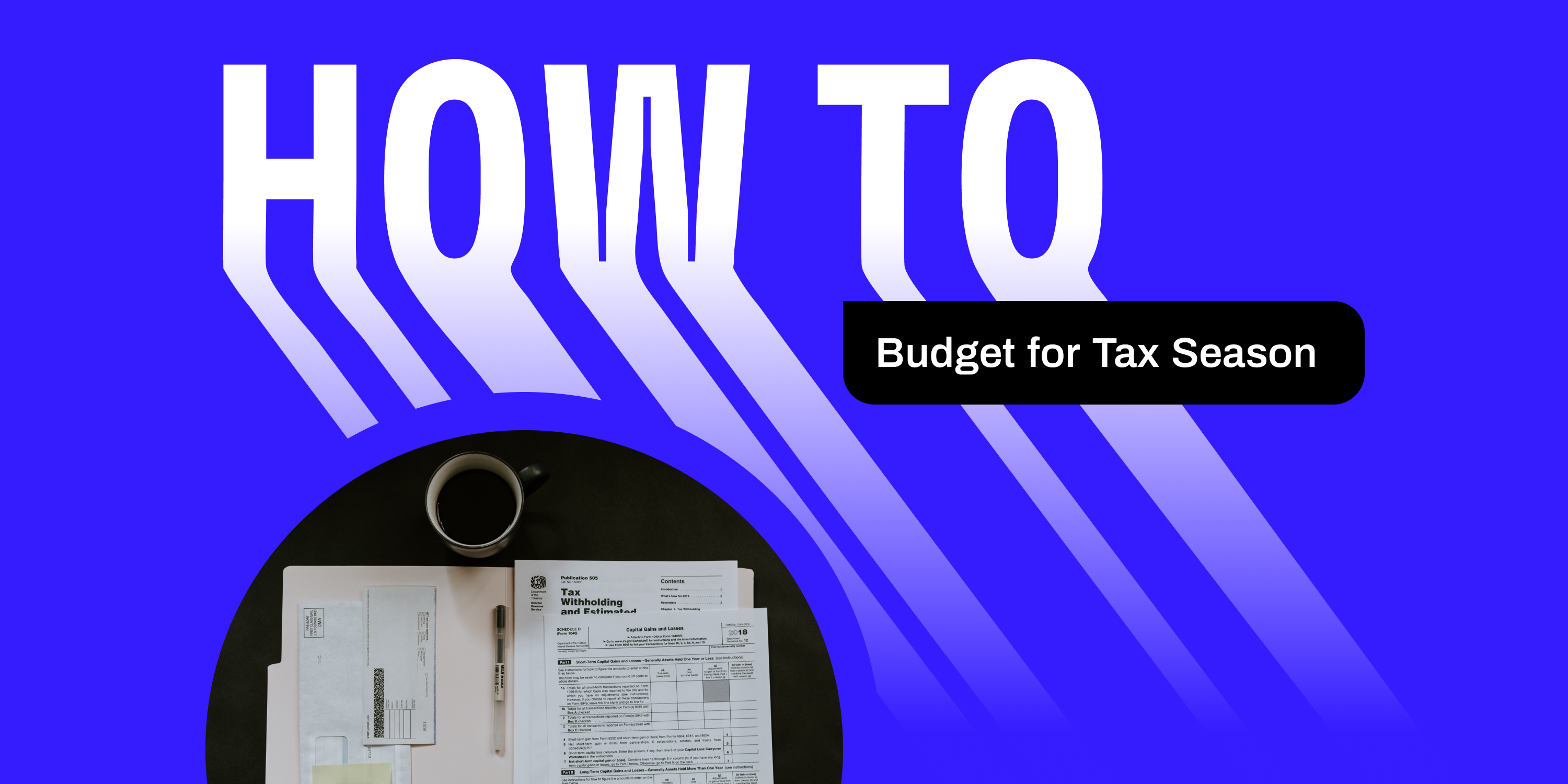
Savings Apps: Your Key to Financial Growth
Have you been trying to build savings without a savings app to help?
This is some text inside of a div block with Cleo CTA
CTASigning up takes 2 minutes. Scan this QR code to send the app to your phone.

A few hacks for making tax season a little less mind-numbingly painful

The forms! The bureaucracy! Finding bits of paper you’d swore you put somewhere! It’s a source of endless joy for all.
If the touch of sarcasm there didn’t make our feelings about tax season obvious, we’ll just say that we know tax season can be a super stressful, if not just mind-numbing, time.
And it’s not something we’re taught about in school either. We’re kind of just expected to absorb knowledge about paying taxes from the ether.
So this article is full of the basics on budgeting for tax season. Starting with this important note from our financial advisor, Anna Yen:
“When you file taxes, you’re filing for the previous year – so in 2023, you file for 2022. By waiting until after the new year, you’ll be able to consider all income and deductions from the prior year.”
If you have any burning questions about tax season now, Anna has a whole article answering popular FAQs.
Here, we’re gonna take a look at some low-effort, high-reward hacks you can put in place now, to make the next tax season easier.
Ok, it might sound small, but it has a big impact, and there are resources you can use that do the work for you.
Tracking your income expenses will help you determine how much money you will have available to pay your taxes when the time comes.
Some ways of tracking your expenses: with a pen and paper (ok Grandpa), with a spreadsheet (it’s not the 90s), or with a ✨ budgeting app ✨
You should also include all of your expenses, such as rent or mortgage payments, utilities, groceries, entertainment, and any other expenses you have on a regular basis.
We may be slightly biased because we literally are a budgeting app, but free app like, let’s say, Cleo, automatically sorts and tracks your income for you - and creates a personlized budget for you in the process.
One simple but effective way to do this is create a separate savings pot for your taxes.
Each time you receive income, you can transfer a certain percentage of that income into your tax savings account (if you’re freelance or self-employed, we’d recommend 30%). This will ensure that you have the money you need to pay your taxes when they’re due. With Cleo’s free budgeting feature, you can automatically transfer funds into a savings account when you get paid.
If a tax savings account is too much of a stretch for you, just focus on putting any available money into an emergency fund. (More on this in our next hack).
Because you’ve already got a solid budget, you’ll be able to fix spots where your income is leaking from (hello free trial you thought you’d cancelled four months ago) and free up at least a few dollars to build this.
By keeping track of your expenses, you can identify expenses that are tax-deductible, such as charitable donations or business expenses. Not that we’re endorsing doing a Bill Gates and branding yourself as a philanthropist to avoid paying tax.
You can also take advantage of tax credits, such as the Earned Income Tax Credit or the Child Tax Credit, if you qualify for them. By maximizing your deductions and credits throughout the year, you can reduce the amount of taxes you owe and increase your refund.
Obviously, we know that most of the time you can’t predict your financial future. Especially if you’re one of the 64% of Americans who are living paycheck to paycheck right now. (That’s where having some form of emergency fund comes in).
However, if you are expecting a positive change in your income, such as a raise or a bonus, you should plan ahead for how this will affect your tax situation. By planning ahead, you can avoid any surprises when tax season rolls around.
This can just be a good old fashioned filing box. Or if you’re a digital girlie, a digital folder, such as Google or Dropbox.
You should also make sure to keep track of any tax-related deadlines, such as the deadline for filing your tax return or the deadline for making estimated tax payments.
And add any important tax dates to your calendar. Ok, that’s the least sexy thing we’ve ever said, let’s end the article with that.
There’s one last thing…

Have you been trying to build savings without a savings app to help?
2020 has been A YEAR and it’s not even over (aside from the whole reset thing we did, thank God). But where there is struggle, there is often learning and we've learned a lot in the last few months.

If you’re gonna dip your toe in the sewage-water that is BNPL, avoid these things

